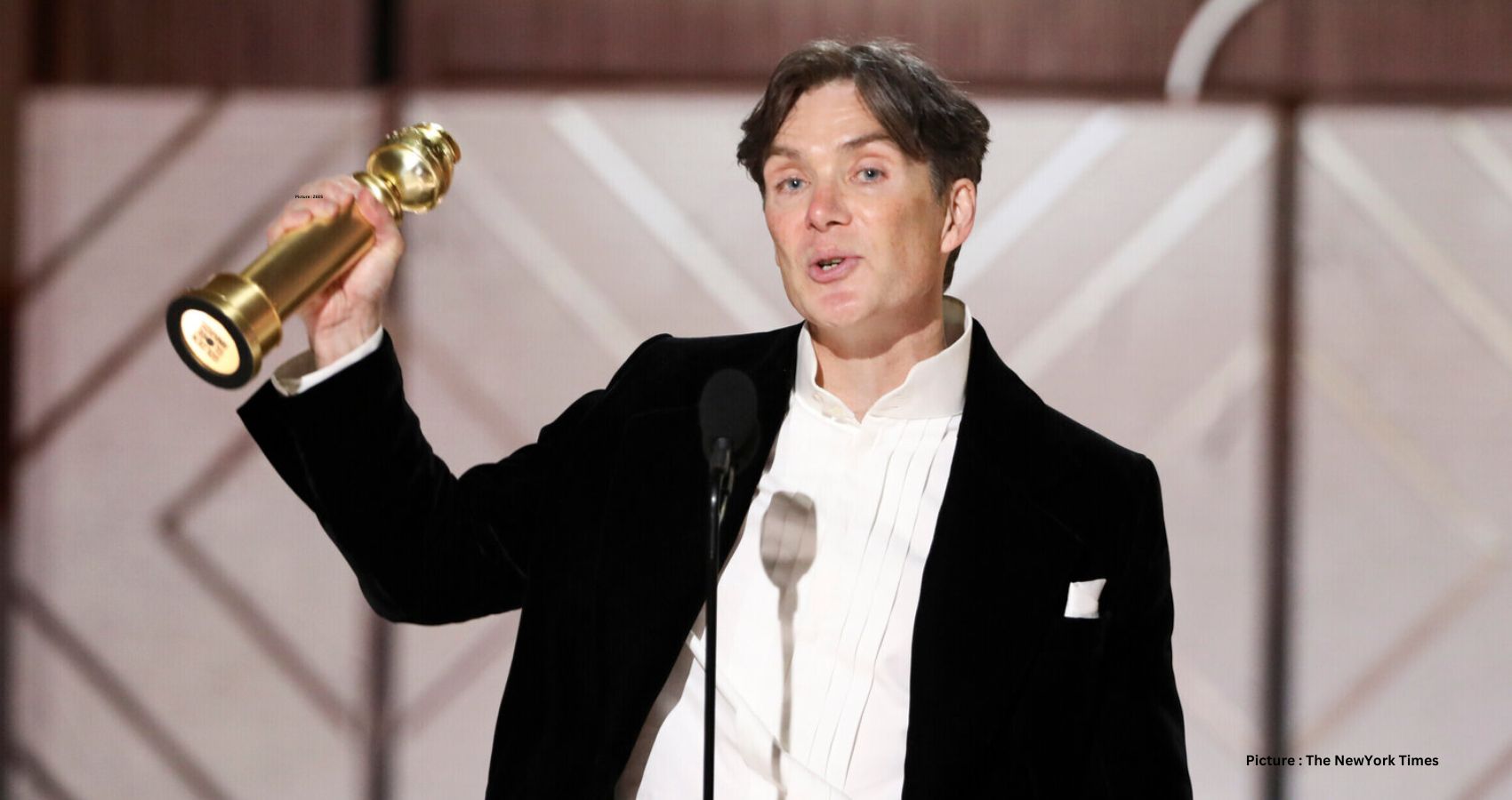The 81st edition of the Golden Globes marked the commencement of Hollywood’s annual awards season, but it was not without its share of chaos and disorder. Jo Koy, the host, delivered a monologue that some described as a train wreck, setting the tone for an evening where winners oscillated between taking the ceremony seriously and not at all, and awards were distributed across a diverse range of films and television shows.
The biographical blockbuster, “Oppenheimer,” directed by Christopher Nolan, emerged as a frontrunner in the upcoming Oscar race, securing five Golden Globes, including Best Drama, Best Director for Nolan, and Best Actor for Cillian Murphy. The film, based on Kai Bird and Martin J. Sherwin’s 2005 biography “American Prometheus,” surpassed expectations, considering its three-hour runtime and the weighty subject matter of the physicist behind the first nuclear weapons.
In a groundbreaking moment, Lily Gladstone made history by becoming the first Indigenous person to win a Golden Globe for Best Actress. Her portrayal of Mollie Burkhart in Martin Scorsese’s “Killers of the Flower Moon” garnered critical acclaim. Gladstone, with Blackfeet and Nez Perce heritage, is only the second Native actress recognized by the Globes, following Irene Bedard’s nomination in 1995 for “Lakota Woman: Siege at Wounded Knee.”
“Poor Things,” Yorgos Lanthimos’s black comedy featuring Emma Stone, secured the top Globe for the best musical or comedy, triumphing over competitors like Greta Gerwig’s “Barbie” and Cord Jefferson’s cerebral satire “American Fiction.” Stone’s performance as a young Victorian woman in this riff on the classic Frankenstein story earned her a second Golden Globe.
Paul Giamatti clinched the award for Best Actor in a Musical or Comedy for his role in Alexander Payne’s “The Holdovers.” The film, where Giamatti portrays an unpopular classics teacher stuck at a New England prep school during Christmas break in the 1970s, received widespread acclaim.
“Succession” reached a pinnacle by tying the record for most wins in the Best Drama category at its final Golden Globes. The HBO drama won its third statuette for Best Drama for its fourth and final season, joining the ranks of “Mad Men” and “The X-Files.”
“The Bear” emerged as the surprise winner for Best Comedy, beating out favorites like “Ted Lasso” and “Abbott Elementary.” Despite questions about its classification as a comedy due to its intense and often dramatic content, the show created by Christopher Storer won over Globe voters.
Billie Eilish’s haunting ballad, “What Was I Made For?” from “Barbie,” secured the Golden Globe for Best Song. The pop star collaborated with her brother, Finneas O’Connell, on the song, outshining other nominees from the blockbuster.
Cillian Murphy, known for his intense onscreen presence, clinched his first Golden Globe for Best Actor in a Drama for his portrayal of J. Robert Oppenheimer in Christopher Nolan’s biographical drama “Oppenheimer.”
Emma Stone celebrated her second Golden Globe win for her role in “Poor Things,” a comedy-drama riff on the Frankenstein legend. Critics praised Stone’s discreet and nuanced performance as Bella, a Victorian-era woman brought back to life with the brain of a fetus.
Christopher Nolan finally secured a Best Director win for “Oppenheimer,” breaking a streak of four previous nominations. The simultaneous release of “Oppenheimer” and Greta Gerwig’s “Barbie” created a pop culture phenomenon known as Barbenheimer, drawing moviegoers to theaters for two vastly different productions.
Hayao Miyazaki’s deeply personal work, “The Boy and the Heron,” won the Golden Globe for Best Animated Motion Picture, marking the Japanese master’s first win in the category.
The courtroom thriller “Anatomy of a Fall” received the Globe for Best Non-English-Language Film, earning its writer-director Justine Triet her second Globe of the night. The film, which won the 2023 Palme d’Or at Cannes, centers on a German woman accused of murdering her French husband.
The newly introduced stand-up comedy category failed to impress, with Judd Apatow criticizing the lack of understanding about comedy among the voters. Nominees included Ricky Gervais, Trevor Noah, Chris Rock, Amy Schumer, Sarah Silverman, and Wanda Sykes, with the choices seemingly driven by fame rather than comedic prowess.
Jo Koy, in his opening monologue, opted for standard celebrity teasing, avoiding any mention of the Golden Globes’ recent troubled history. Last year’s host, Jerrod Carmichael, had addressed the lack of diversity in the voting body during his opening remarks.
Ali Wong made history by becoming the first actress of Asian descent to win a Golden Globe for Best Actress in the Limited Series or TV Movie category. Her performance in the Netflix comedy “Beef” alongside Steven Yeun, which explores a bitter feud after a traffic incident, garnered acclaim.
As the awards season unfolds, these Golden Globe winners showcase the diverse and exceptional talent across the film and television industry. The recognition of groundbreaking performances and achievements marks a significant moment in the evolution of Hollywood’s prestigious awards landscape.


